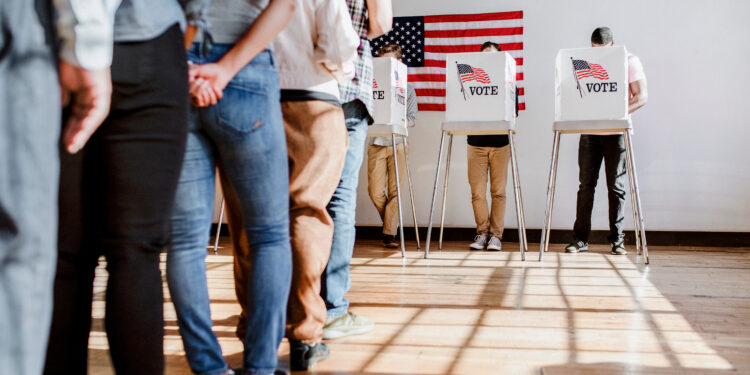On Thursday, September 26th, North Carolina’s State Board of Elections announced the removal of 747,000 registered voters from the voter rolls over the past 20 months. The purged voters were deemed ineligible for various reasons, including moving within the state without updating their addresses or not participating in the last two federal elections, which classified them as inactive.
The removal also affected individuals who were deceased, had felony convictions, moved out of state, or requested to be removed. This large-scale purge took place just weeks after North Carolina Republicans filed a lawsuit claiming that the state failed to address complaints about ineligible voters. The lawsuit specifically criticized voter registration forms in Wake County for allegedly lacking required information, such as driver’s licenses and Social Security numbers.
North Carolina is one of seven swing states expected to play a crucial role in the 2024 presidential election between Vice President Kamala Harris and former President Donald Trump. The state has only voted for one Democratic candidate, former President Barack Obama in 2008, in a presidential election this century. Recent polls show Harris running competitively with Trump in the state, heightening the significance of voter roll accuracy in this tight race.
Additionally, North Carolina is seeing a heated gubernatorial contest between Republican Lieutenant Governor Mark Robinson and Democratic Attorney General Josh Stein. Stein, who currently leads in the polls, has expressed concerns over the impact that changes to voter registration might have on voter access.
The voter purge also comes amid controversy over the state’s approval of digital IDs from the University of North Carolina at Chapel Hill as valid voter identification. Republicans voiced opposition to this move, but a local judge recently rejected their claim.
Following the purge, North Carolina now has around 7.7 million registered voters. The voter roll update has sparked debate on voter eligibility and the potential effects on the state’s closely watched elections. The North Carolina State Board of Elections has not yet commented further on the matter.









